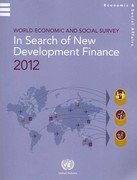Question
Two baseball scouts are competing to sign the same player. The player is worth $100m if he is high quality, $50m if mediocre, and nothing
Two baseball scouts are competing to sign the same player. The player is worth $100m if he is high quality, $50m if mediocre, and nothing if low quality. The scouts do not know the player's quality with certainty, though it is common knowledge that Pr(v = 100) = Pr(v = 0) = 1/4, while Pr(v = 50) = 1/2. The scouts must bid on the player in a two-player second-price sealed-bid auction. Before bidding on the player, Scout 1 and Scout 2 each carry out a report on the player to get a signal of his quality. Scout 1 gets signals1, Scout2 gets signals 2. If v=100 then s1 =s2 =H. If v=0 then s1 =s2 =L. Instead, if v=50 then with probability 0.5 we have s1 = H, s2 = L and with probability 0.5 we have s1 = L, s2 = H.
1. Is it an equilibrium for each scout to bid their expected valuation? Why/why not?, show your workings
2. Is it an equilibrium for each scout to bid $0 if their signal is L, but $100 if their signal is H? (hint: is any deviation profitable?)
Step by Step Solution
There are 3 Steps involved in it
Step: 1

Get Instant Access to Expert-Tailored Solutions
See step-by-step solutions with expert insights and AI powered tools for academic success
Step: 2

Step: 3

Ace Your Homework with AI
Get the answers you need in no time with our AI-driven, step-by-step assistance
Get Started


